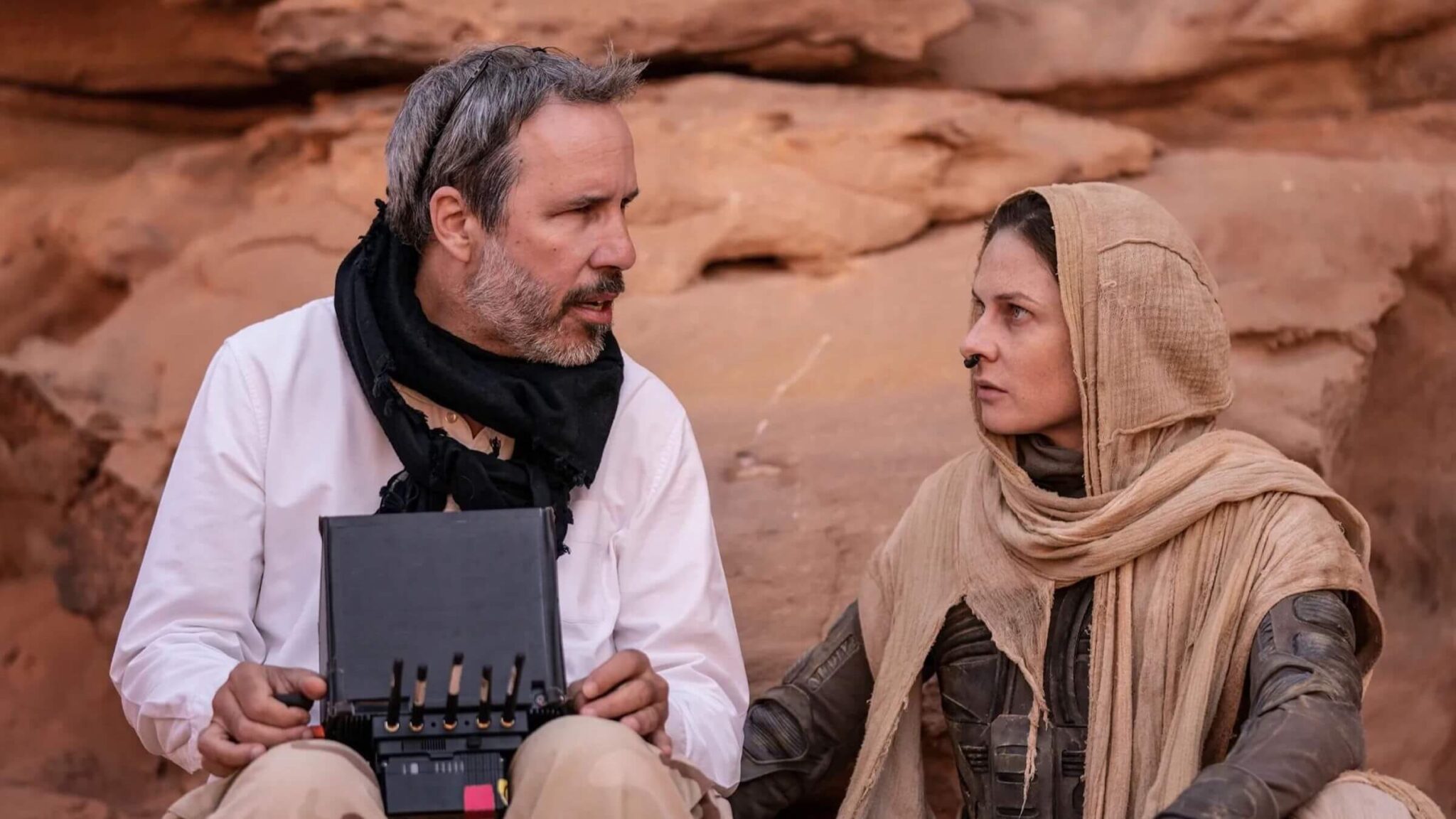15 Proverbial Phrases and Their Screenwriting Meanings

Wikipedia defines a proverbial phrase as a type of a conventional saying that is similar to a proverb and transmitted by oral tradition. The difference is that a proverb is a fixed expression, while a proverbial phrase permits alterations to fit the grammar of the context.
These phrases are always fun to drop in conversation. They entice the philosophical mind and engage those around you. So the next time you're hanging out with your screenwriting peers and talking shop, drop some of these proverbial screenwriting phrases and watch the room ponder and reflect. We'll even throw in some lessons learned for each of them.
1. "You can lead a horse to water, but you can't make him drink."
Some screenwriters can't accept feedback. Many of them instantly revert to self-defense mode to defend their work — their babies.
Lesson Learned: While the water you drink may not taste as good as you had hoped, it just might save you — and your script — in a time of need.
2. "Don't count your chickens before they hatch."

Leads and prospects are never a sure thing — especially in Hollywood. That contact you made at the film festival — the one with all of the amazing credits that seemed to love your elevator pitch? That manager you cold emailed that said they'd take a look at your script? That friend of a relative that works in the business and said they'd read your work and pass it along?
It all means nothing until it means something.
Lesson Learned: Don't celebrate until the deal is signed. Hope for the best, prepare for the worst.
3. "If you want something done right, you have to do it yourself."
Don't rely on other people to do what needs to be done for your career. You have to do things yourself to control the quality of your work. You can't rely on Save the Cat. You can't rely on The Writer's Journey. You can't rely on any guru or screenwriting consultant. It's all great food for the brain, but when all is said and done, you have to do the work.
Lesson Learned: In the end, trust no one but yourself.
4. "The pen is mightier than the sword."

It doesn't matter how great you are at pitching. It doesn't matter how fast and how big you can talk. In the end, written words and ideas are the most effective ways to convince people. And in your case, those words and ideas come in the form of a great screenplay.
Lesson Learned: Just write, baby. Just write.
5. "When in Rome, do as the Romans."
At some point in your screenwriting career, when you've beaten the odds and have finally gotten that first paid writing assignment or are working on your rewrite draft of the script the studio just bought, you're going to quickly realize that your writing process is going to have to adapt to those around you. You'll be under strict deadlines. You'll be forced to deal with notes you don't agree with.
You can and should find ways to retain your voice, but understand that film is a collaborative medium.
Lesson Learned: Choose your battles and do you as much as you can, but realize that sometimes you must do "as the Romans do."
6. "When the going gets tough, the tough get going."

The screenwriting journey is a grind. You will face more rejection than most others will in their non-Hollywood careers. Despite all of that, the screenwriters that succeed don't give up when they come across challenges. They just work harder. They utilize rejection, using it as a fuel to drive them forward.
Lesson Learned: If it's really what you're meant to do, you'll never quit.
7. "No man is an island."
No screenwriter succeeded without the help of others — peers, mentors, friends of friends, industry contacts, assistants, agents, managers, producers, development executives — you don't succeed alone.
Lesson Learned: Never forget those that lift you on their shoulders, guiding you towards your dream.
8. "Fortune favors the bold."
Anyone that chases a dream is of a different breed than most. Those who struggle and fight for what they want are more successful than those who try to live safely and follow a less resistant path. Screenwriters have to push themselves to the limit to succeed.
Lesson Learned: Be strong, be bold, be relentless in the pursuit of your dream. The fortune is then more likely to come.
9. "People who live in glass houses should not throw stones."

Screenwriting peers are an important part of an up-and-coming screenwriter's life. It is with them that you will likely receive your first feedback and it is you that they will rely on just the same as you all struggle to learn the art and craft of screenwriting. If you're going to give feedback, do so in a positive way. Know that the best feedback is often not just about finding out what is wrong with the script, but also pointing out what is right with it.
Lesson Learned: Do unto others as you would have them do unto you.
10. "There's no place like home."
Screenwriters are often told to play the trends and odds. Hollywood loves trends and they love the better odds of genres that draw in bigger audiences. There is some truth to those statements. But in the end, the best place for a screenwriter to be when they're conceiving and writing their next scripts is... home. And home is what you love, the genres you're passionate about, the stories you love to tell, and the movies you want to see on the big screen. Chasing trends and playing the odds may be good business, but there's no place like home.
Lesson Learned: Find the best hybrid of what they want and what you love.
11. "The early bird catches the worm."
One who arrives first has the best chance for success. That's the standard meaning and can be applied to almost anything. In this case, the screenwriting interpretation can be applied to just as many. If you get in early on a hot topic and write a script about it, the early bird may catch the worm. If you make an industry contact and wait too long to follow up with them, the slow-to-rise bird may not catch the worm.
Lesson Learned: Well, the early bird catches the worm. The phrase speaks for itself — in many ways.
12. "You can't always get what you want."
Okay, well, to fully understand this phrase you have to finish it off with but if you try sometimes, well you just might find, you get what you need.
As a screenwriter, things will never go the way you want. It's a guarantee. And the interesting thing is, you don't want it to go the way you want. Success in screenwriting is often the byproduct of multiple missteps and anomalies — being at the right place, at the right time, with the right people, when you have no clue that any of that is taking place.
Lesson Learned: The fates will decide, whether you like it or not.
13. "A watched pot never boils."

Time feels longer when you're waiting for something to happen. When you're working on a script and you're stuck, waiting for inspiration, and it's not coming, many people call this writer's block (I don't). It's a lengthy and utterly time consuming period in a writer's life — where time moves slow.
Stop watching the metaphorical pot and get to work. Get writing. Inspiration won't always come to you. Sometimes you have to go find it. Go watch movies, tackle a topic or genre that scares you and keeps you on your toes, find a better writing sanctuary that gets you in the zone, create a better development phase that prepares you better, stop over-analyzing, and stop making excuses.
Lesson Learned: Don't wait. Take action.
14. "Actions speak louder than words."
Saying that you're a screenwriter but never finishing that script doesn't mean much. Actually doing it is harder and more meaningful.
And when you finish that first script and put all of your eggs in that one basket, you're not taking action to get your screenwriting career going. You have to continue on stacking your deck as you learn the art and craft of screenwriting through trial and error. You have to be brave enough to take on the challenge, fail, and fail again. And then learn from it all to apply that knowledge and experience to the next.
Being a screenwriter means you're writing scripts until you can call yourself a working screenwriter by getting paid. Being a working screenwriter means you're writing scripts until you can call yourself a produced screenwriter by getting scripts to the point where people are going to make them.
Lesson Learned: You can talk the talk, but until you're walking the walk, it's all just words and nobody really hears you.
15. "One man's trash is another man's treasure."

One prominent executive or producer will utterly hate and dismiss your script while another of the same acclaim will love it.
When you get rejected by one, don't let that rejection define you or the success of that script. Continue on. Keep getting it out there. Do your research and make sure you're sending it to the right people — and then wait until you and your writing are in the right place, at the right time, with the right people ready and willing to make your dream come true.
Lesson Learned: Keep on keeping on. If you've honed your craft and honestly written your best, the script will find its champion willing to fight to get it purchased and made.
Ken Miyamoto has worked in the film industry for nearly two decades, most notably as a studio liaison for Sony Studios and then as a script reader and story analyst for Sony Pictures.
He has many studio meetings under his belt as a produced screenwriter, meeting with the likes of Sony, Dreamworks, Universal, Disney, Warner Brothers, as well as many production and management companies. He has had a previous development deal with Lionsgate, as well as multiple writing assignments, including the produced miniseries Blackout, starring Anne Heche, Sean Patrick Flanery, Billy Zane, James Brolin, Haylie Duff, Brian Bloom, Eric La Salle, and Bruce Boxleitner. Follow Ken on Twitter @KenMovies
For all the latest ScreenCraft news and updates, follow us on Twitter and Facebook!
Tags
Get Our Screenwriting Newsletter!
Get weekly writing inspiration delivered to your inbox - including industry news, popular articles, and more!



























